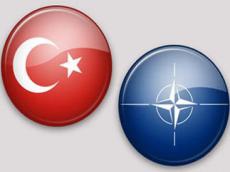Today.Az » World news » Turkey, only NATO country on FATF's gray list
17 February 2014 [10:14] - Today.Az
 NATO member Turkey has remained on the gray list of the Financial Action Task Force (FATF), the international body for setting the global standards for combating terrorist financing (CFT), due to insufficient laws and capabilities to counter terrorism financing in Turkey, Today's Zaman reported.
NATO member Turkey has remained on the gray list of the Financial Action Task Force (FATF), the international body for setting the global standards for combating terrorist financing (CFT), due to insufficient laws and capabilities to counter terrorism financing in Turkey, Today's Zaman reported.
The FATF issued a statement late on Friday saying that even though there have been improvements in Turkey for countering terrorism financing, identifying and freezing terrorist assets are still a problem.
"Turkey has continued to take steps towards improving its CFT regime, including as demonstrated by recent court decisions. The FATF welcomes Turkey's progress in largely complying with the FATF standard on criminalization of terrorist financing," FATF said in their statement.
"However, certain concerns remain regarding Turkey's framework for identifying and freezing terrorist assets under UNSCRs [United Nations Security Council Resolutions] 1267 and 1373. The FATF encourages Turkey to address these remaining strategic deficiencies and continue the process of implementing its action plan," the statement continued.
The FATF, which has 34 countries and two regional organizations as members, had its plenary session in Paris Feb. 12-14 and issued its statement after concluding the session on Friday.
The worst countries according to the FATF recommendations are Iran and North Korea, which are on the so-called blacklist of FATF. Turkey is on the gray list, which is described as "jurisdictions with strategic AML/CFT [anti-money laundering/combating the financing of terrorism] deficiencies that have not made sufficient progress in addressing the deficiencies or have not committed to an action plan developed with the FATF to address the deficiencies.
The other countries on the gray list are Algeria, Ecuador, Ethiopia, Indonesia, Myanmar, Pakistan, Syria and Yemen. Due to their progress in substantially addressing their action plan agreed with the FATF, Kenya and Tanzania were removed from the gray list.
"The FATF statement makes it clear that Turkey remains a problem. Admittedly, Ankara is not alone. Also on the gray list are Algeria, Ecuador, Ethiopia, Myanmar, Pakistan, Syria and Yemen. Turkey, however, is the only NATO member on this list", said Jonathan Schanzer, former US Treasury terrorism finance analyst and Foundation for Defense of Democracies vice president for research, in an email to Today's Zaman after the release of the FATF statement.
Schanzer also said that "Turkey's omission from the black list was both predictable and appropriate. Turkey does not belong on the same list as Iran or North Korea. However, troubling questions remain about Ankara's relationship with Iranian gold traders, Hamas leaders, al-Qaeda in Syria and persons designated under the US sanctions regime."
Before the FATF meeting, there were reports that the Turkish lira had weakened and stocks dropped due to concerns over the possibility that Turkey might be put on the FATF blacklist along with Iran and North Korea due to corruption and illicit finance allegations.
Ankara was first notified of its deficiencies in 2007 when a FATF team alerted Turkey that after a "mutual evaluation," it was decided that Ankara had not adequately criminalized terrorism finance in the country, Schanzer wrote. He added that Turkey was expected to fix its laws to address the concerns, but Turkey's foot-dragging ultimately led the FATF to issue a blacklist warning on October 19, 2012.
"To the relief of Turkey's Western allies (and, no doubt, Turkish financial institutions), Ankara adopted legislation at the 11th hour that precluded punitive action in February 2013. But this did not remove Turkey from FATF's list of jurisdictions 'that have not made sufficient progress in addressing the deficiencies'," said Schanzer.
According to its website, the FATF, sponsored by the Organization for Economic Co-operation and Development (OECD), is an international body that sets the global standard for anti-money laundering and combating the finance of terrorism, and it works to encourage compliance with those standards. In that capacity it identifies countries with deficiencies that pose a risk to the international finance system and based on a review by the International Co-operation Review Group (ICRG), jurisdictions may be publicly identified on of the two FATF public documents that are issued three times a year.
/Trend/
|
|